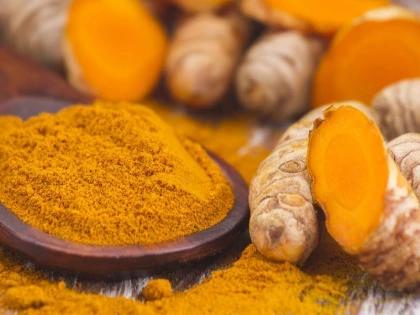The Benefits of Herbal Tea for Your Health and Well-Being
According to studies, drinking tea can strengthen your immune system, reduce the symptoms of a cold, and reduce stress.
Herbs, spices, fruits, and plants are combined to make herbal teas, sometimes referred to as herbal infusions or tisanes.
They are inherently free of caffeine because they don't contain the Camellia sinensis leaves that authentic tea does.
1. Decreases hypertension
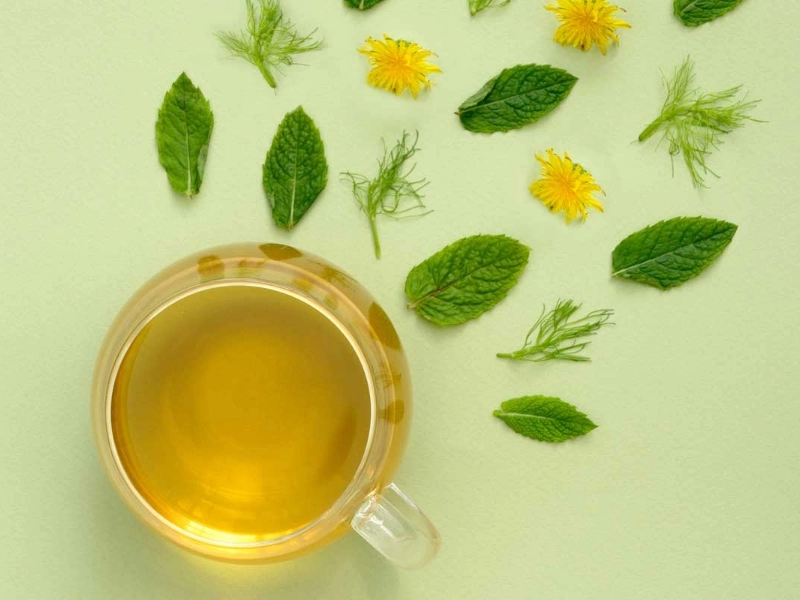
It has been demonstrated that teas including hibiscus, chamomile, and hawthorn tea can help clear the arteries, lower systolic blood pressure, and enhance cardiovascular health.
However, be cautious and speak with your doctor before beginning to drink herbal teas, since some may mix with specific prescriptions and have adverse effects on certain individuals. Caffeine is another thing to avoid, as it might temporarily raise systolic blood pressure.
2. Reduces triglycerides
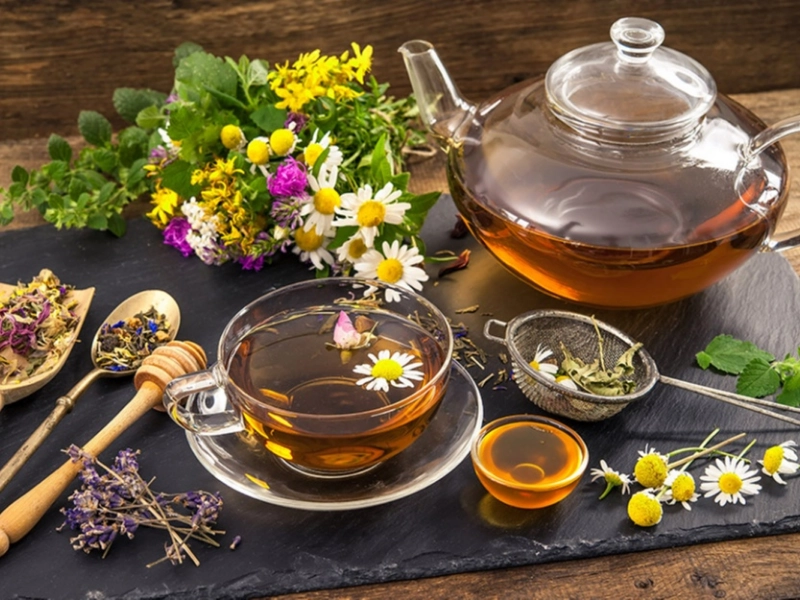
A variety of herbal teas are intended to assist in controlling cholesterol levels; herbs that aid in the breakdown and metabolism of lipids include Speedwell. They also contain bergamot peel and dandelion leaf to assist the liver, and bilberry to cleanse the blood and lower extra fats.
Another alternative is Rooibos, which appears to lower oxidative stress and cholesterol, according to a study.
3. Reduces glycemia
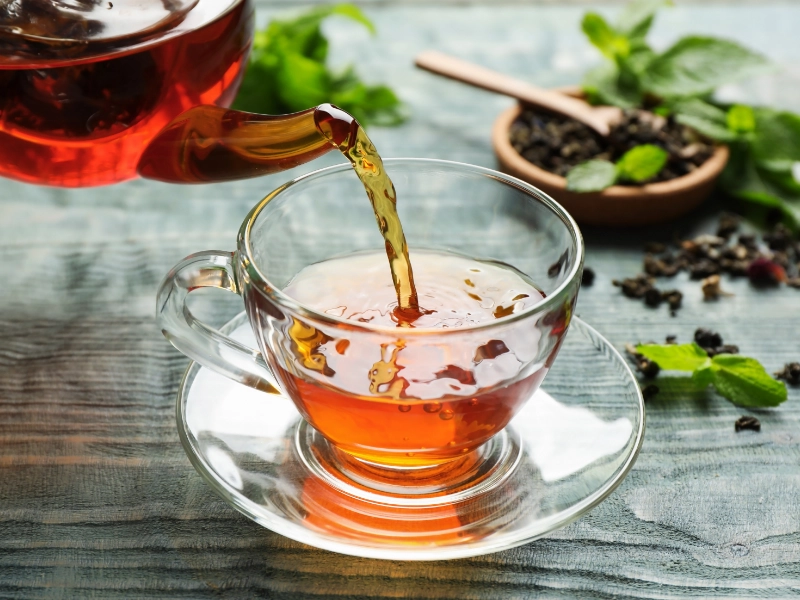
The extensive selection of herbal tea choices is well known for providing numerous health benefits. For example, rooibos tea decreases harmful cholesterol, and green tea helps minimize sugar increases.
Teas with ginger and peppermint are also well-known for relieving gastrointestinal complaints, including nausea and bloating. Just be cautious to find out if the herbs you've selected are dangerous to take while pregnant or interact with prescription drugs.
4. Reduces tension
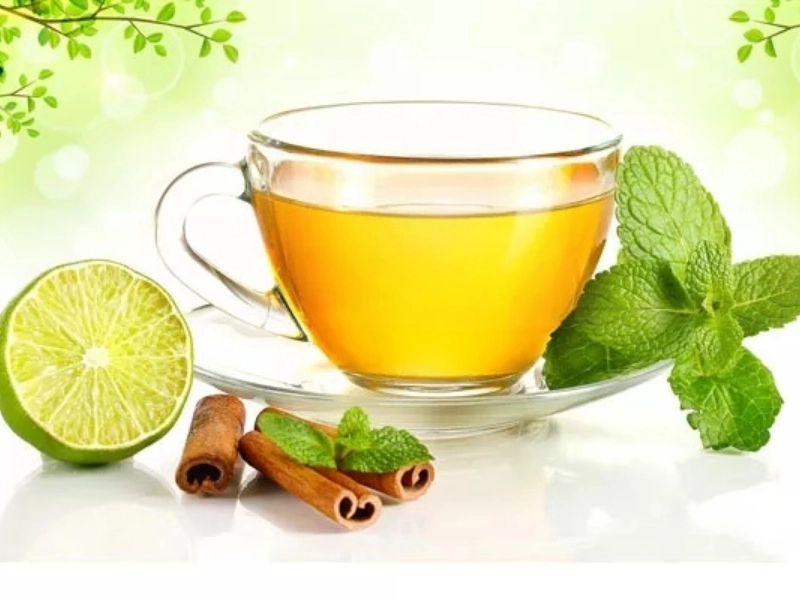
Herbal tea, or tisane, has several health benefits due to the plants used in it. Regardless of whether you're trying to find a way to unwind and relax, enhance digestion, increase energy, or help you sleep better,
Numerous herbal teas with calming and relaxing properties, such as lavender and chamomile, are well-known. Some, such as Schisandra, are supposed to encourage a happier mood.
5. Increases resistance
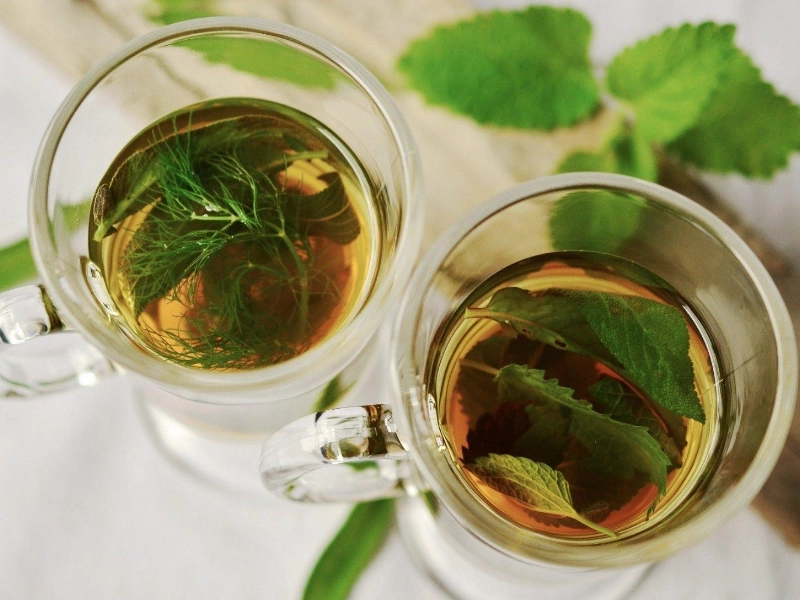
Herbal teas offer antioxidant, antibacterial, and anti-inflammatory qualities. They also aid in better digestion and immunity.
These advantages stem from the use of herbs and spices that are free of caffeine, a stimulant that speeds up metabolism and revs the brain, which is found in the Camellia sinensis plant. There are no negative effects from consuming immune-boosting teas up to six or eight times a day. By rebalancing the inflammation circuit, they aid in the body's natural healing process.
6. Enhances Digestion
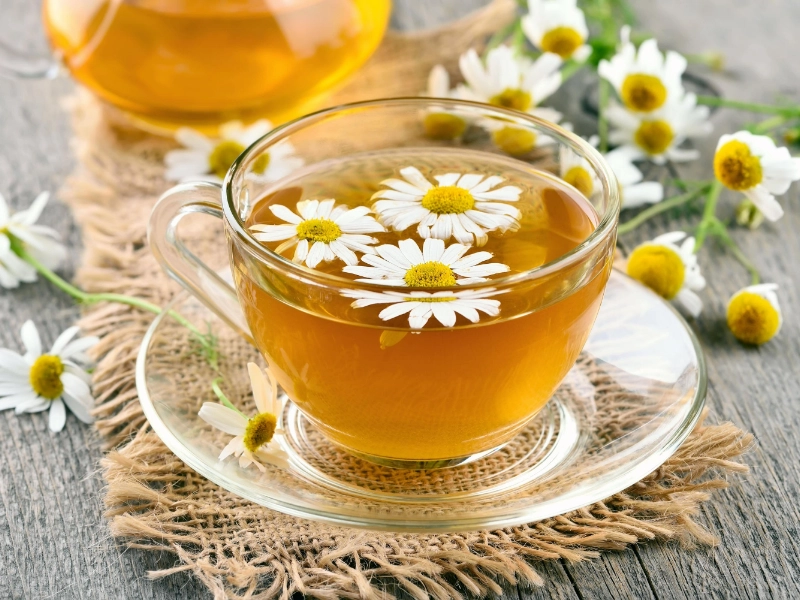
Herbal tea might assist if you have digestive problems like indigestion, constipation, or bloating.
Some herbs, like ginger, help reduce symptoms like bloating after meals by encouraging the development of enzymes that can break down lipids more efficiently.
Other plants, including chamomile, help with digestion and soothe the stomach. They are also effective in reducing stress and soothing the stomach.
7. Allocates Pain
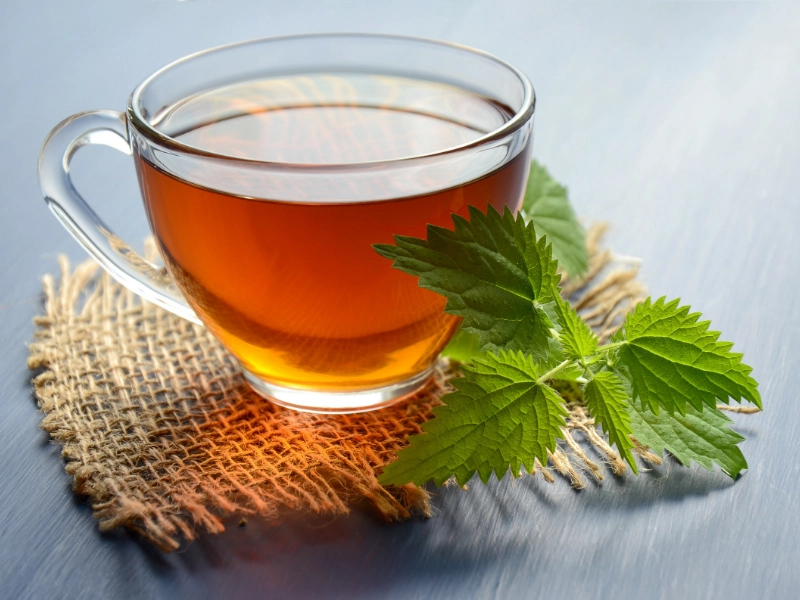
Numerous herbs in herbal tea have inherent analgesic qualities. For example, chamomile tea helps reduce anxiety and encourages sound sleep.
Though brewed herbs have a long history of use worldwide, they are not officially considered “true tea” because the Camellia sinensis plant is not included. But exercise caution when you drink. Certain herbs may not be healthy to take when nursing or pregnant.
8. Increases Vigor
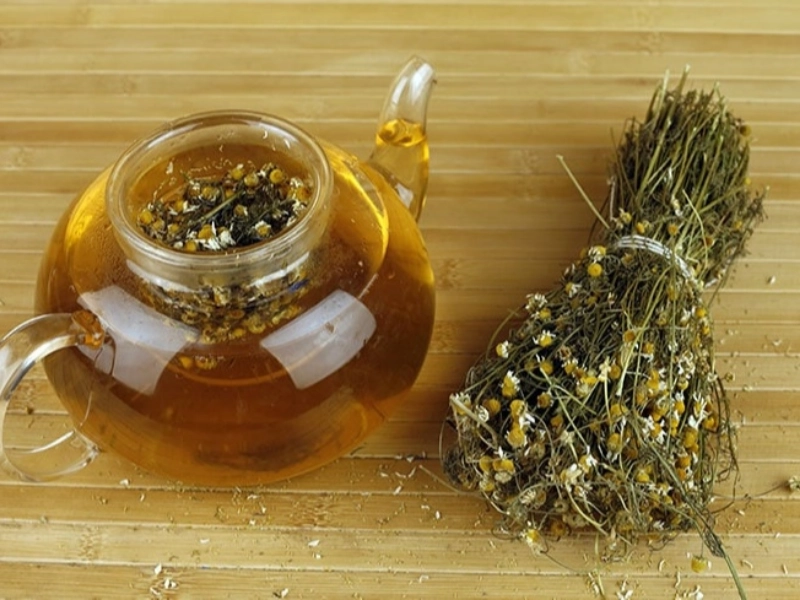
An invigorating cup of herbal tea is the ideal way to start your day off right. This combination, which is free of caffeine, includes ashwagandha root for balanced health, orange peel and hibiscus for a pleasant taste, and green tea for a natural energy boost.
Make sure that any prescription medications you are taking do not conflict with any herbal supplements, including herbal teas. It's also advised that you speak with your physician prior to beginning any herbal treatment.
9. Enhances Memory
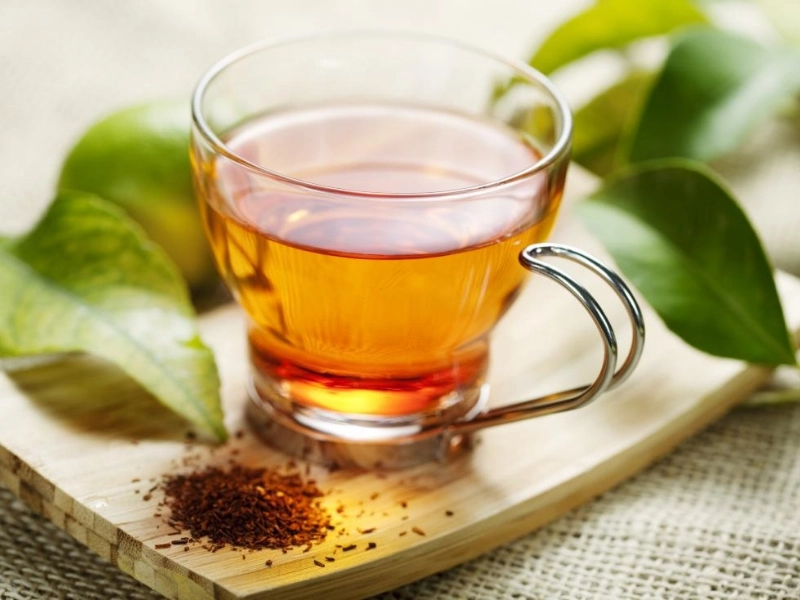
Herbal teas can be helpful whether you're studying for an exam all night or you just want to feel more alert. While some, like ashwagandha, lower stress and promote concentration, others increase memory recall by stimulating neurotransmitters.
Herbs that are stimulating include rooibos, peppermint, and green tea. Herbs that promote relaxation include lavender and chamomile, both of which enhance restful sleep. A modern study indicates that gingko biloba, a common ingredient in Ayurvedic medicine, enhances cognitive function and improves working memory.
10. Increases immune response
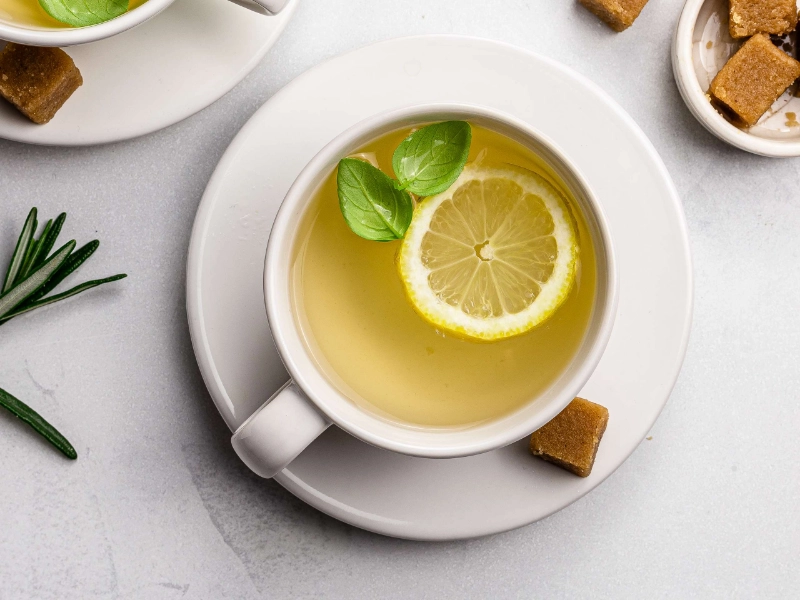
Tisane, or herbal tea, has a multitude of plant chemicals that can strengthen your immunity against illnesses and improve your overall health. Try a blend like NutraDefence, which has eucalyptus for respiratory relief and elderberry, ginger, and ginseng for boosting immunity and preventing colds and flu.
Licorice tea is another beverage that boosts immunity, but only in moderation, as too much of it can harm adrenal function. Additionally, chamomile soothes and relaxes you.






